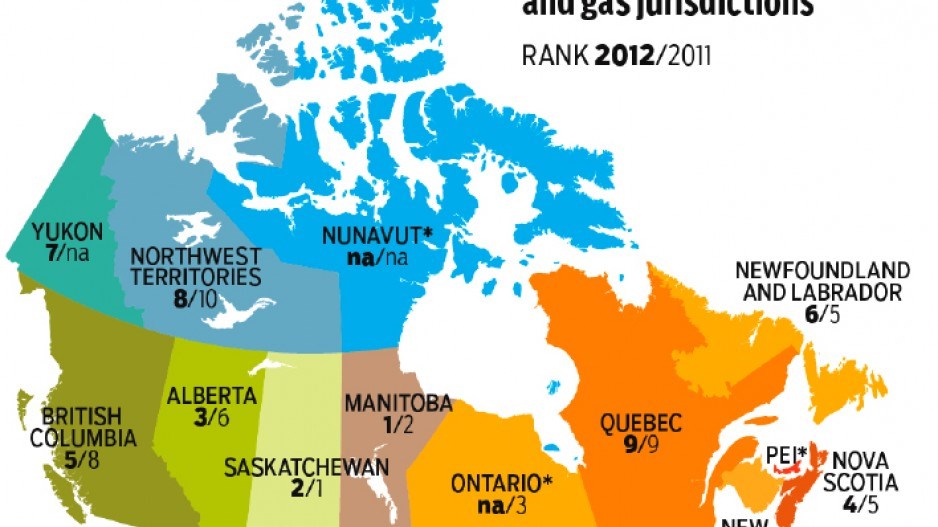BC’s natural gas industry is more investment-friendly this year than it was in 2011, according to the
The annual report tracks the oil and gas industry’s perception of investment barriers. This year it canvassed the opinions of petroleum executives and managers in 147 jurisdictions around the world, including 10 in Canada, and used the data to generate rankings.
B.C.’s ranking jumped up to fifth place in Canada this year from eighth in 2011 and to 39th position globally from 69th last year.
“B.C. did very well,” report co-authorThe Fraser Institute senior economist noted that, in this year’s survey, B.C. industry executives identified business-friendly improvements in areas such as the province’s regulatory climate, environmental regulations and taxation.
He said that while B.C.’s natural gas industry is concerned about the falling price of natural gas in North America over the past couple years, the industry has seen some positive developments in B.C. in the past year.
“Certainly government has put their best foot forward with the Jobs Plan and the Natural Gas Strategy,” he said. “That sends a very positive and strong signal.”
The Global Petroleum Survey found that in Canada this year:
•Manitoba overtook Saskatchewan as the best place in Canada for oil and gas investment;
•New Brunswick sank three ranks to 10th and least investment-friendly jurisdiction; and
•Quebec was second to last.
Angevine noted that both New Brunswick and Quebec’s rankings are due to the way regulations governing the exploration of shale gas resources are being administered.
“The governments [of New Brunswick and Quebec] just weren’t ready for development, and a lot of companies did some exploration and [the governments] changed the rules quite a bit.”
He added that anti-development activism in New Brunswick has increased.
The report also noted that Alberta has seen significant improvements in investors’ eyes in the past year. It jumped to third place in Canada from sixth last year and to 21st globally from 51st overall. •




